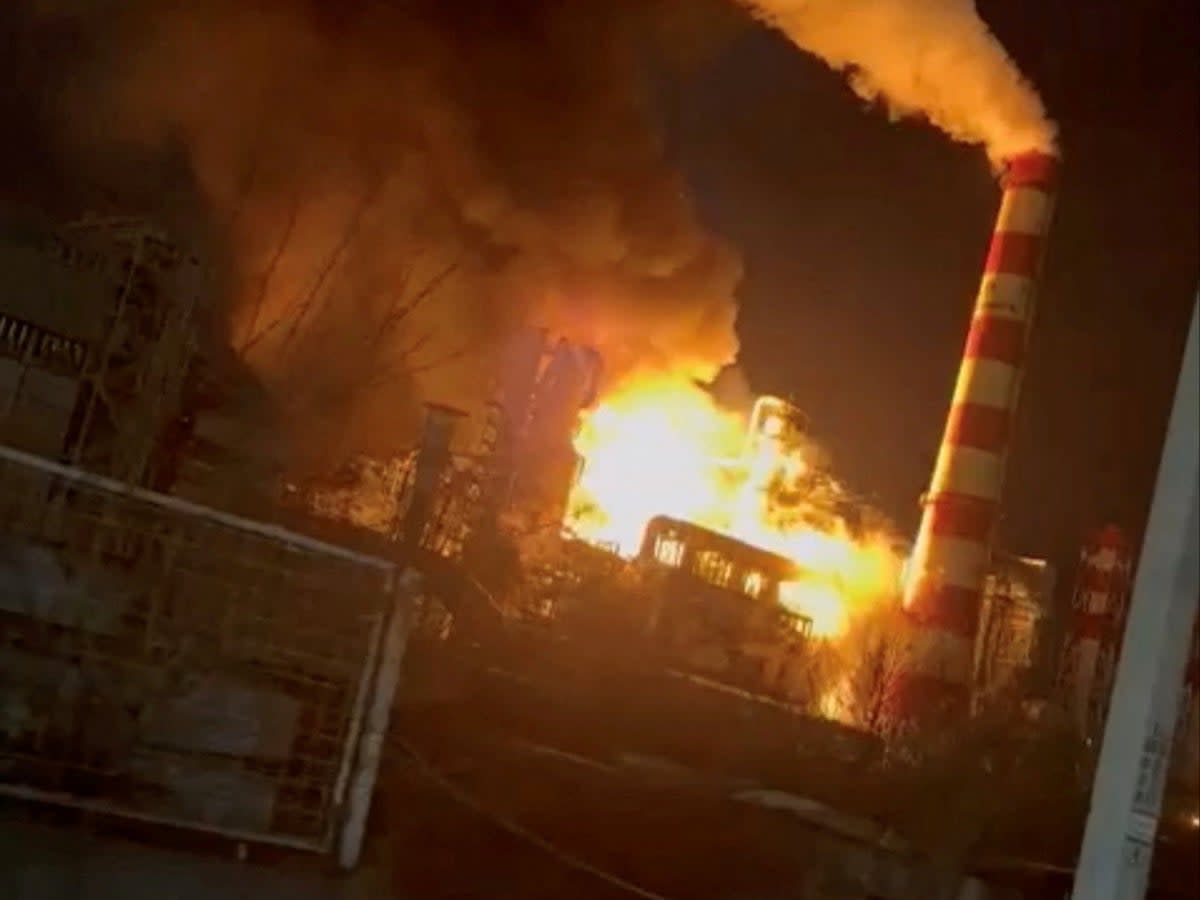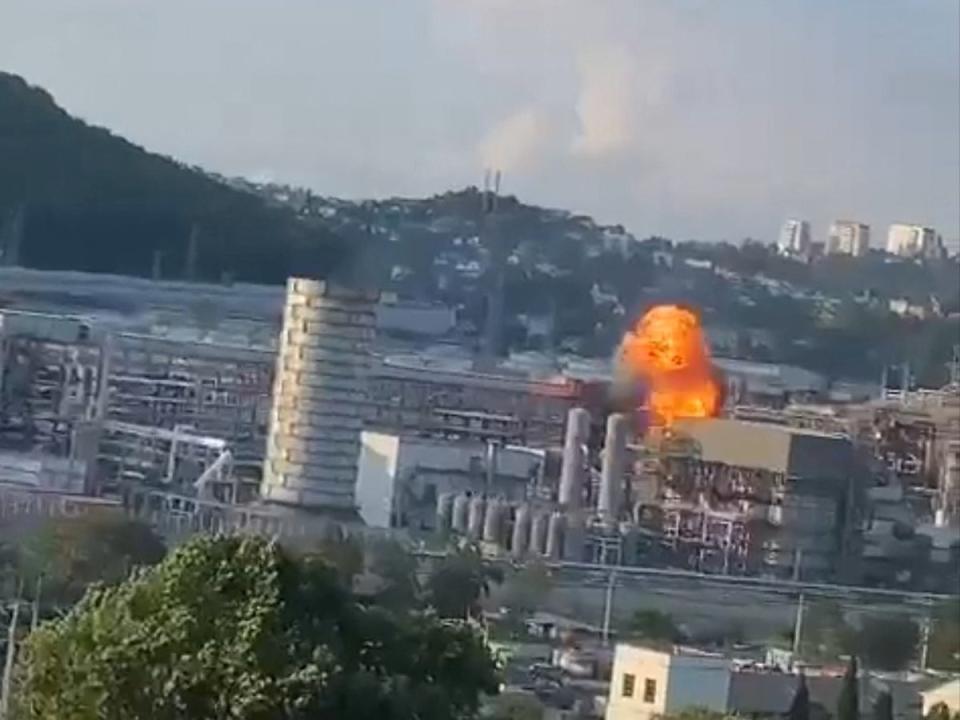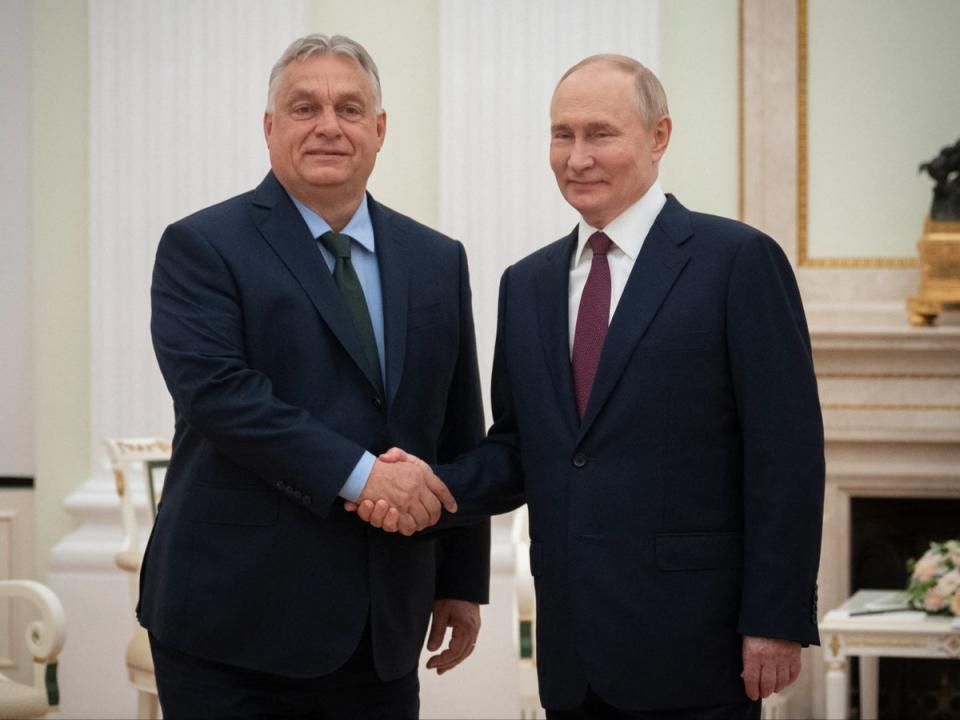Ukraine in mass drone attack on targets in Russia as Putin’s forces launch intense assaults in east

Ukraine has launched dozens of drones in a mass strike across targets in Russia and around the Black Sea, including a major oil refinery.
It comes as the country's top commander said that Russian forces were staging relentless assaults to try to advance towards the town of Pokrovsk, a logistics hub in eastern Ukraine, and that there was active fighting taking place along the entire front line.
“The enemy pays no attention to their fairly high level of losses and continues to push through towards Pokrovsk,” Colonel General Oleksandr Syrskyi said in a statement from the eastern front.
The oil refinery in Tuapse was damaged in an overnight assault, officials from the Krasnodar region confirmed on Monday.
Debris from a drone that was shot down by Russia sparked a fire at the refinery, which is located in the Black Sea and owned by Kremlin-controlled oil company Rosneft.
The blaze has since been contained and there were no deaths following the attack, the regional administration said on the Telegram messaging app.
It was not immediately clear the extent of the damage it had sustained from the fire or if the refinery was operational.
Russia’s defence ministry earlier said its air defence systems destroyed 75 drones launched by Ukraine, including eight near Tuapse.

The Tuapse refinery has been a target of several Ukrainian air attacks since the start of the war in 2022.
Earlier, the defence ministry said 47 drones were downed over the Rostov region in Russia’s southwest, 17 over the waters of the Black and Azov seas, eight over the Krasnodar region, where Tuapse is located, and single drones over the Belgorod, Voronezh and Smolensk region.
The ministry did not say whether its defence systems destroyed the drones.
Vasily Golubev, governor of the Rostov region, said on Telegram that no one was injured as a result of the attack and there was no serious damage detected.
On the ground, fierce battles are raging near several eastern villages and towns, including Krasnohorivka and Chasiv Yar, a strategic hilltop town whose capture would bring Russia closer to threatening important Kyiv-held Donetsk region cities.
Russia staged 39 assaults on the Pokrovsk front in the last 24 hours – a total of 117 registered along the front line, the military said in its daily battlefield readout. Russian forces also captured two villages in the east over the weekend, according to the Russian media.
Ukraine’s foreign minister, Dmytro Kuleba, who travels to China this week on a diplomatic trip, has said that Russia controls 17.68 per cent of Ukrainian territory compared with 17.61 per cent at the start of the year.
In other developments, EU foreign ministers are set to evaluate Hungary prime minister Viktor Orban’s “unacceptable” position on the bloc’s role in Ukraine and his trips to Russia and China.
Hungary took over the six-month rotating presidency of the bloc in July and almost immediately went to Moscow and Beijing in what was described as a “peace mission” despite none of his EU partners being aware, or mandating him to do so.

He also left a Nato summit early to meet former US president Donald Trump, has been a stern critic of Western military aid to Ukraine and has warm diplomatic relations with Russian president Vladimir Putin.
EU foreign policy chief Josep Borrell said on Monday that the decisions taken by the Hungarian government were “unacceptable”.
Some EU member states would like the bloc to show a tougher stance on Hungary and have suggested boycotting or downgrading the attendance of ministers at an informal meeting in Budapest at the end of August.
German foreign minister Annalena Baerbock told reporters on arrival in Brussels that Borrell represented EU foreign policy for the ministers and that it was “not surprising that the ego trips” had irritated many.
Speaking on Monday, Hungary’s foreign minister Peter Szijjarto said: “For weeks now, the Brussels foreign bureaucracy and the leaders of some EU countries have been grinding their teeth over our peace mission, out of frustration/envy/exposure of their failed strategy.
“All we get from our Brussels and European friends is a childish sit-in boycott and verbal karate.”
In addition, a Czech-led initiative to buy ammunition from around the world for Ukraine will deliver 100,000 rounds to the country in July and August, Czech foreign minister Jan Lipavsky said on Monday.
The Czech Republic has been an avid supporter of Ukraine and led efforts to raise funds to get more ammunition and shell deliveries to Kyiv.
“During July and August, we will send about a total of 100 [thousand] pieces more. From September these deliveries will accelerate,” Mr Lipavsky told reporters in Brussels.
Additional reporting by Associated Press and Reuters

